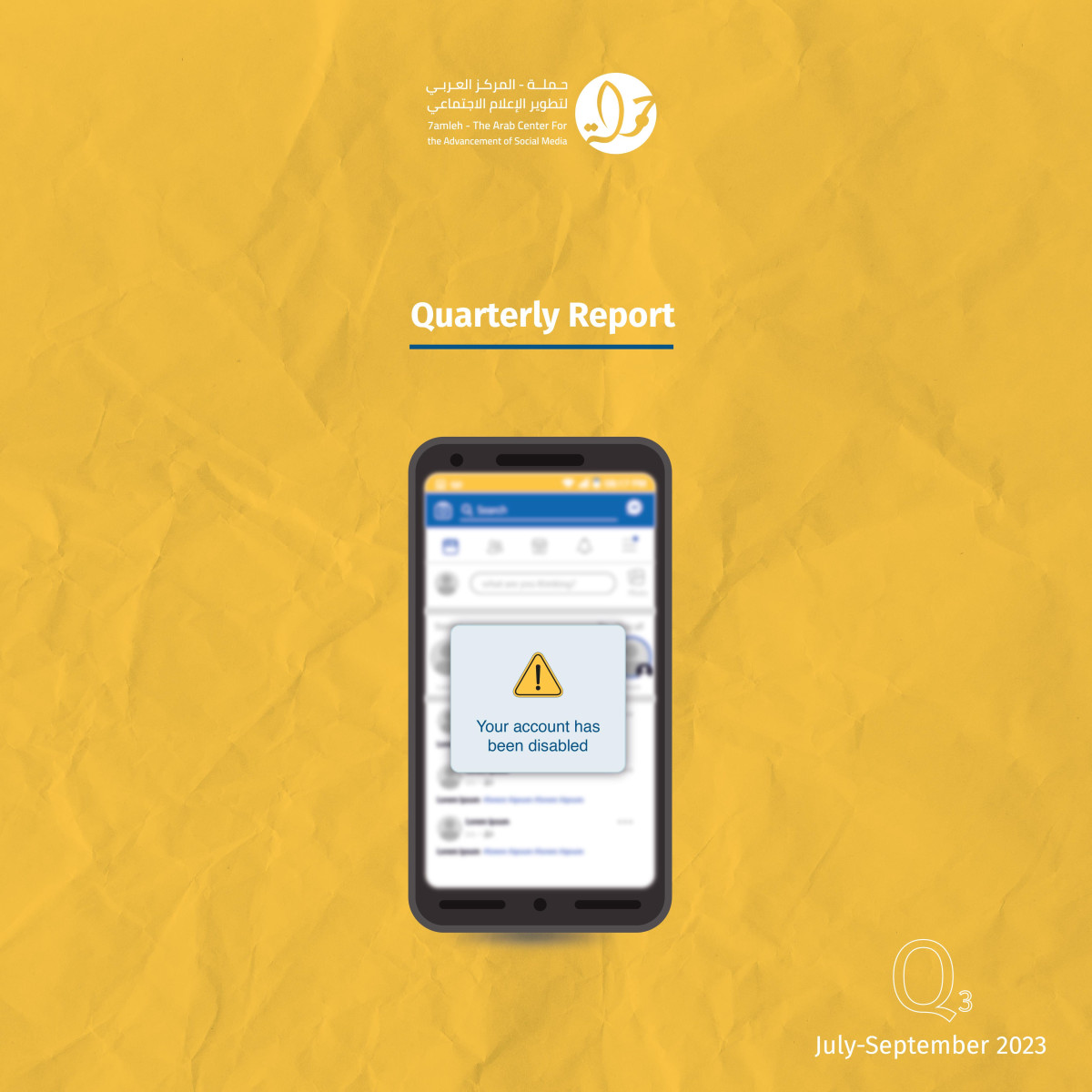
The occupied Palestinian territory (oPt) remains embroiled in a persistent cycle of unrest and tension, which has persisted over the last two years, with ongoing developments continually reshaping the area. As we transition into the fourth quarter of this year, we are confronted with a disquieting pattern of sustained violence and actions by Israeli forces and settlers that loom over the population and the land. These unfolding events continue to undermine the fundamental human rights and freedoms of Palestinians, particularly within the digital realm. This digital dimension amplifies the challenges systematically faced by Palestinians, adding another layer of complexity to their struggle for justice and equality.
In this complex digital environment, social media companies have increasingly turned to artificial intelligence techniques and algorithms as essential tools for adopting and implementing content moderation decisions. Regrettably, these very tools have frequently been utilized to censor legal and legitimate content and enforce limitations on Palestinian voices, as shown in this report. What's concerning is the obvious disparity between the strict measures taken against hate speech and incitement in many cases worldwide and the significant inaction against the same type of hate speech and incitement is used against pro-Palestinian activists and the Palestinian community within Israeli digital space.
Social media companies persisted in implementing punitive policies and measures that unfairly and disproportionately impact accounts and pages dedicated to advocating for Palestinian rights. In its Annual Human Rights report, Meta recently claimed of dedication to fostering transparency regarding human rights due diligence, particularly in the realm of fairer content moderation in the Israel/Palestine context. However, there remains a continuous tolerance for hate speech and inflammatory content against Palestinians, while Palestinian voices and narratives are still discriminated against.
For more details, check out the full report: Click here